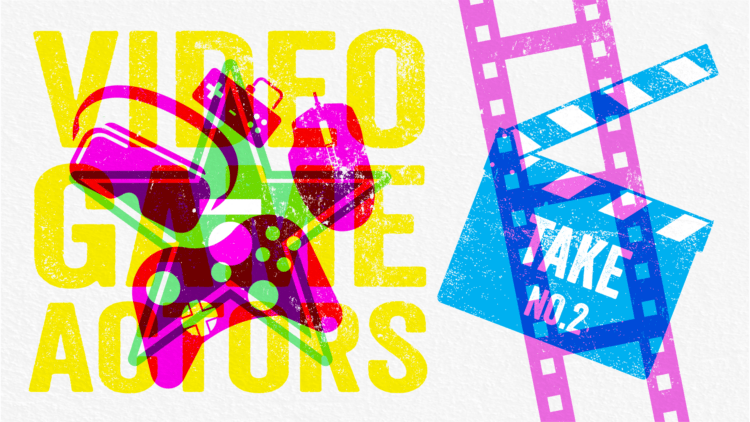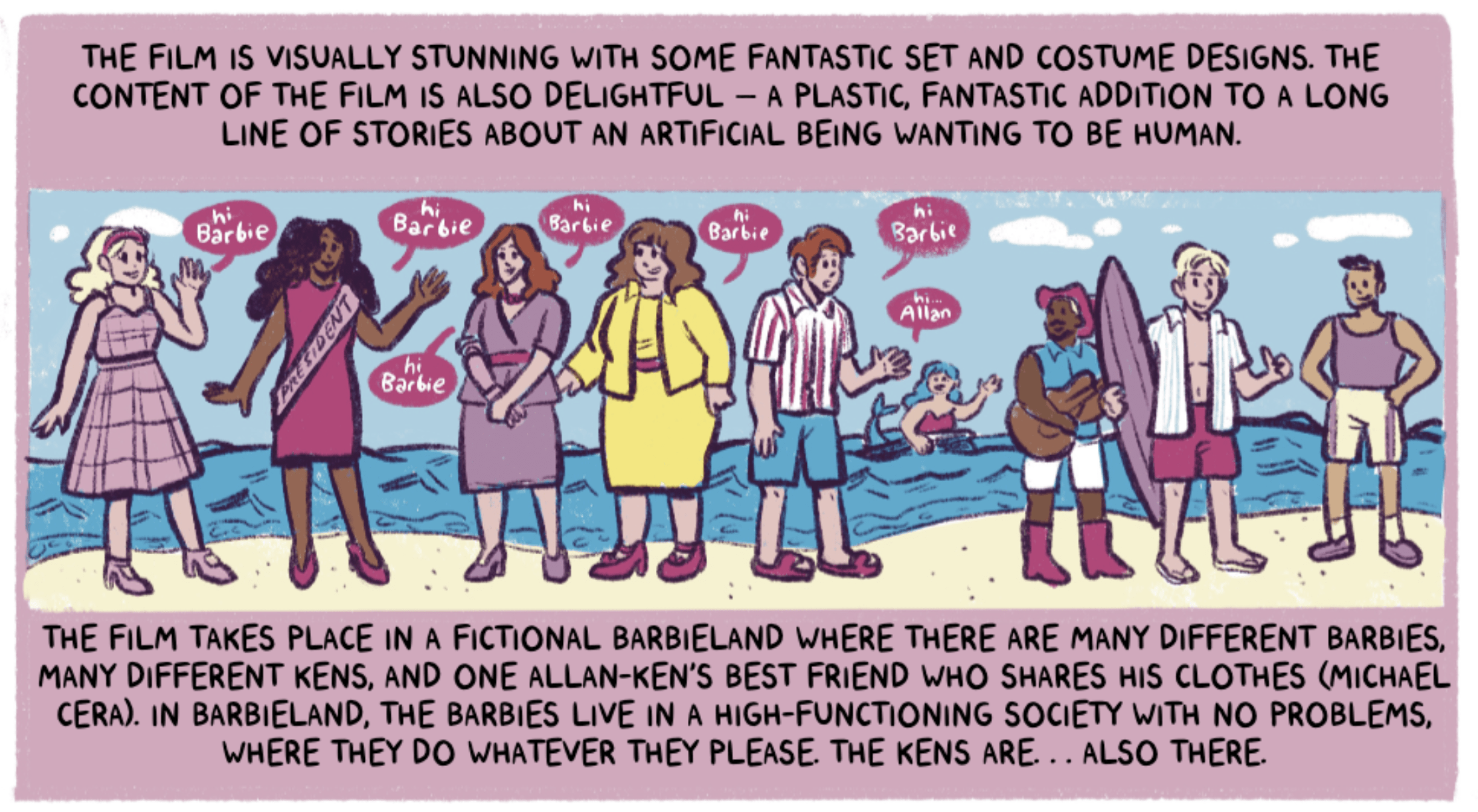
As an artist, what is fair compensation for your work? When do you get compensated? Do you wonder if the contracts you sign will, in the future, protect or restrict you as an artist? And what happens when new technologies complicate your career or livelihood?
For students at the School of the Art Institute of Chicago and other art-based universities across the United States, these questions come up constantly in classrooms and among peers — and they’re also being debated across the entertainment industry with new unionization efforts and subsequent strikes. “How Striking” is a column that seeks to explore these questions and inform the SAIC community on the labor and employment side of the entertainment industry.
You’re trying to survive a zombie apocalypse with a rag-tag group of people who found each other in the midst of chaos. You and your group find an empty grocery store to squat in for the night. But an alarm goes off, and the noise attracts a hoard of undead. In a split-second, two of the people about whom you’ve come to care deeply are being attacked. You hear their panicked cries, their pleading for help. You see their worried, terrified faces. You have to make a decision; you have to do something! But you can’t save them both.
And just like that, a video game has made you feel like the lives of two people you care about are in your hands. This is the power of a good actor in a video game, and it can make or break the gaming experience.
The Screen Actors Guild and American Federation of Television and Radio Artists also know the power of acting in video games. But in order for an actor to give their best performance, they must be able to work in reasonable and fair labor conditions.
This is why actors who are members of SAG-AFTRA could potentially go on strike again in the video game industry this September. This would be a concurrent strike separate from their strike against the Alliance of Motion Picture and Television Producers which has been ongoing since July.
Level 1 – The Strike Authorization Vote
On September 1, SAG-AFTRA’s National Board unanimously agreed to send out a strike authorization vote to the members of the guild. This does not necessarily mean there will be a strike against the video game industry, but it opens the door to that possibility.
Like a crafting recipe in a video game (think, needing the right materials to build a pickaxe in “Minecraft”), there is a certain set of requirements that need to be met for SAG-AFTRA to strike. So let’s break it down in order to better understand what exactly is going on.
SAG-AFTRA’s contract that covers video games, their Interactive Media Agreement, will expire on September 26, 2023. This agreement had already been extended a year past its original expiration date in 2022, and it covers the work actors do with video games companies and divisions including Activision, Disney, Epic Games, WB Games, and Electronic Arts, to name a few. SAG-AFTRA has been attempting to bargain with the signatory gaming companies for this entire year, but they have not reached a deal.
If SAG-AFTRA and the video game companies can’t reach an agreement by September 26, there is an opportunity for a strike to occur. This means SAG-AFTRA wants to be prepared by sending out the strike authorization vote. If the guild members vote yes, SAG-AFTRA can be prepared to go on strike against the gaming industry at midnight, September 26.
This is similar to what occurred this summer with SAG-AFTRA and the AMPTP when screen actors and studios could not reach a new agreement before their previous deal ran out, and SAG-AFTRA officially went on strike against the AMPTP on July 14.
“The overlap of these two SAG-AFTRA contracts, is no coincidence, but rather a predictable issue impacting our industry as well as others all over the world,” said SAG-AFTRA president Fran Drescher in a statement. “The disease of greed is spreading like wildfire ready to burn workers out of their livelihoods and humans out of their usefulness. We at SAG-AFTRA say ‘No. Not on our watch.’”
Level 2 – The Issues at Stake
From traditional voice actors to full-on performance capture projects that digitally replicate actors’ likenesses, the video game industry has become an increasingly relevant and expanding area in which actors work. The video game industry is worth over $200 billion as of 2022, and a big chunk of this industry requires actors, voice talent, and stunt performers.
SAG-AFTRA has only ever gone on strike against the video game industry once before, in 2016. At that time, the gaming industry was not paying actors residuals the same way that film and television productions are required to. That strike lasted nearly a year, becoming the longest strike in the union’s history. Though ultimately, the actors did not get residuals, they did achieve a sliding scale of bonus wages.
Today, SAG-AFTRA’s demands are primarily centered around increasing wages, protections regarding the usage of AI, and a safer working environment. Many of their demands overlap with what they are demanding from the AMPTP for screen actors. Some demands, like the requirement of a medic on set for stunt performances, are industry standards for film and television, but not for video game productions.
Audrey Cooling, a spokesperson for the gaming companies, said in a statement that the gaming companies are negotiating in good faith and hope to reach a mutually beneficial deal.
AI, is by far, one of the biggest talking points in this negotiation. The gaming industry, more so than the film and television industry, had already implemented AI into their productions. Performance capture is a process all about collecting actors’ expressions and movements and applying them to characters in the games to make them feel more human.
“Voice and performance capture AI are already among the most advanced uses of AI: the threat is here and it is real. Without contractual protections, the employers are asking performers to unknowingly participate in the extinction of their artistry and livelihoods,” said SAG-AFTRA’s national executive director and chief negotiator, Duncan Crabtree-Ireland.
Level 4 – What Happens Next?
Like a cliffhanger at the end of a video game, we wait for the next installment of this story. The strike vote will close on September 25 as the Interactive Media Agreement runs out on September 26. By the end of this month, there should be news as to whether SAG-AFTRA has reached a deal with the gaming companies, or if SAG-AFTRA’s ‘Summer of Strikes’ will become a double feature this fall.







